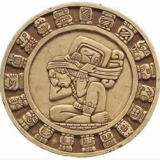The Microbiotic Diet…(Or Should We Say Macrobiotic?)
There are so many different philosophies regarding the foods we consume and the different eating plans and diets we follow, no wonder people get mixed up when trying to remember the correct name for any one particular plan. The Microbiotic Diet, as some label it, is really based on the Macrobiotic movement that began long ago by Sagen Ishizuka. It was popularized in the United States in the mid sixties by Michio Kushi, who taught the value of eating more natural types of foods, such as: whole grains, vegetables, and beans. But what is the philosophy behind this way of life and is it really healthy? Some would say yes, while others would disagree whole-heartedly.
To better understand the Macrobiotic philosophy (Microbiotic Diet for those still learning), look to the teachings of Sagen Ishizuka. He taught that most foods leaned toward either yin or yang properties. Proper balances of yin and yang energy were needed for the body to stay healthy and disease free. That Macrobiotics embraces the notion that food and food quality affects our lives more greatly than most would ever think. That our health, well being, and our happiness is affected by our diet. A Macrobiotic teacher will share that natural foods are less processed and are better for our bodies. This is because they are clearly more pure and unaltered. When we cook with more traditional methods and prepare food for ourselves, family, and friends, we are also eating food that has more love and care, which invites a balance of yin and yang.
If we ate the foods considered as balanced yin-yang foods, our diet would be based on whole grains, cereals, pulses, vegetables, fruit, seaweed, and fermented soy products. We would combine these foods for our meals and they would make up the major part of our diet. We would rarely eat foods that are either yin (like sweets or dairy) or yang (like salty foods and red meat).
If we examine this philosophy more closely, it doesn’t take into account the different metabolic nature of each body type, nor does it consider the glycemic index of foods and how starchy foods are converted into sugar, which raises our insulin levels (negatively effecting our immune systems and our body’s organs).
It is easy to appreciate that when we prepare our own meals we do so with much more care. Mass-produced processed food often does not have much nutritional value, is unnatural, and contains many unhealthy additives.
Perhaps Microbiotic Diet is the right term. If we look under the “micro”scope, we may find a well-intentioned philosophy. However, if we focus and look more closely, we need to determine if this is a healthy and balanced diet; if it is a method of eating that suits our specific body type and provides what our unique body needs to stay healthy and disease-free. Of course, that decision is for each one of us to decide for ourselves.






